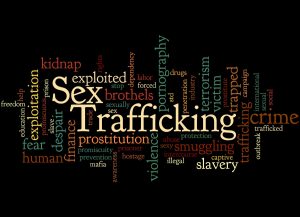The Effect of Coronavirus on Sex Trafficking Victims

Many victims of sex trafficking and domestic abuse turn to shelters and hotlines in order to flee their situations. The National Human Trafficking Hotline has been overrun with calls since the Coronavirus pandemic began. The hotline’s manager, Korin Arkin, also noted that logistics with transportation and the required health screenings are leading to delays in getting people the help that they need. More and more shelters are turning people away because they are either full or cannot provide the proper service.
Business as usual on the streets of Los Angeles
Sex trafficking and prostitution in Los Angeles has been business as usual, according to Stephany Powell, executive director of Journey Out. Powell said that the streets look just like they did prior to the pandemic and the stay-at-home orders. “When you talk to them about the coronavirus, they’re aware of it, and they’re afraid of it like everybody else,” Powell said of the workers. “If you’re out there right now, you’re really being pushed to be out there, whether that push factor is poverty or somebody making you.”
Victims of sex trafficking and prostitution often do not have access to social assistance others are when the economy suffers. For example, many of these people do not have access to welfare, Medicaid, food stamps, or housing vouchers. Many are also turned away by churches, community groups, and family organizations.
Isolated with their abusers
One of the biggest concerns heading into the pandemic was for people in abusive relationships, especially those who were living with their abusive partners or spouses. The stay-at-home orders have made it difficult for sexual abuse victims to remove themselves from a deteriorating situation. “Victims of domestic violence are already quite isolated from their family and friends and then you add a quarantine and you’re basically trapped in a house with your abuser 24/7, who may even use this virus against them as a means of power and control over them,” said Joyce Bilyeu, director of client services at the Sacramento Regional Family Justice Center.
Help is still available
Victims of sex trafficking and domestic violence should know that help is still available in California. The crisis hotline at My Sister’s House has experienced a call increase of 17 percent since the pandemic began despite how difficult it is to make a call with the abuser home all the time. However, these and other hotlines are still operating 24 hours per day, seven days per week. They are considered essential and have their call takers and counselors working from home.
Resources
- 24-hour helplines: WEAVE, 916-920-2952; Family Justice Center, 916-875-HOPE; My Sister’s House, 916-428-3271.
- The National Domestic Violence Hotline 24-hour hotline: 800-799-7233.
- The National Sexual Assault Hotline: 800-656-4673.
- The ChildHelp National Child Abuse Hotline: Call or text HELP to 800-422-4453.
- The National Human Trafficking Hotline: 888-373-7888 or text HELP to 233733.
- The National Suicide Prevention Lifeline: 800-273-8255.
- WellSpace Health: 916-368-3111 or text HOPE to 916-668-4226.
Do you have a family member or friend who is the victim of sex trafficking or is stuck in an abusive relationship? You can get them the help they need by calling one of the hotlines provided. You can help them obtain legal assistance from Taylor & Ring by calling 310-209-4100 or completing a contact form today.
Related Articles

Serving clients throughout the Greater Los Angeles and Southern California area, we represent victims in a variety of civil litigation cases. If you or a loved one has been injured, turn to an experienced Los Angeles personal injury or sexual assault lawyer.
Find out more about Taylor & Ring.

